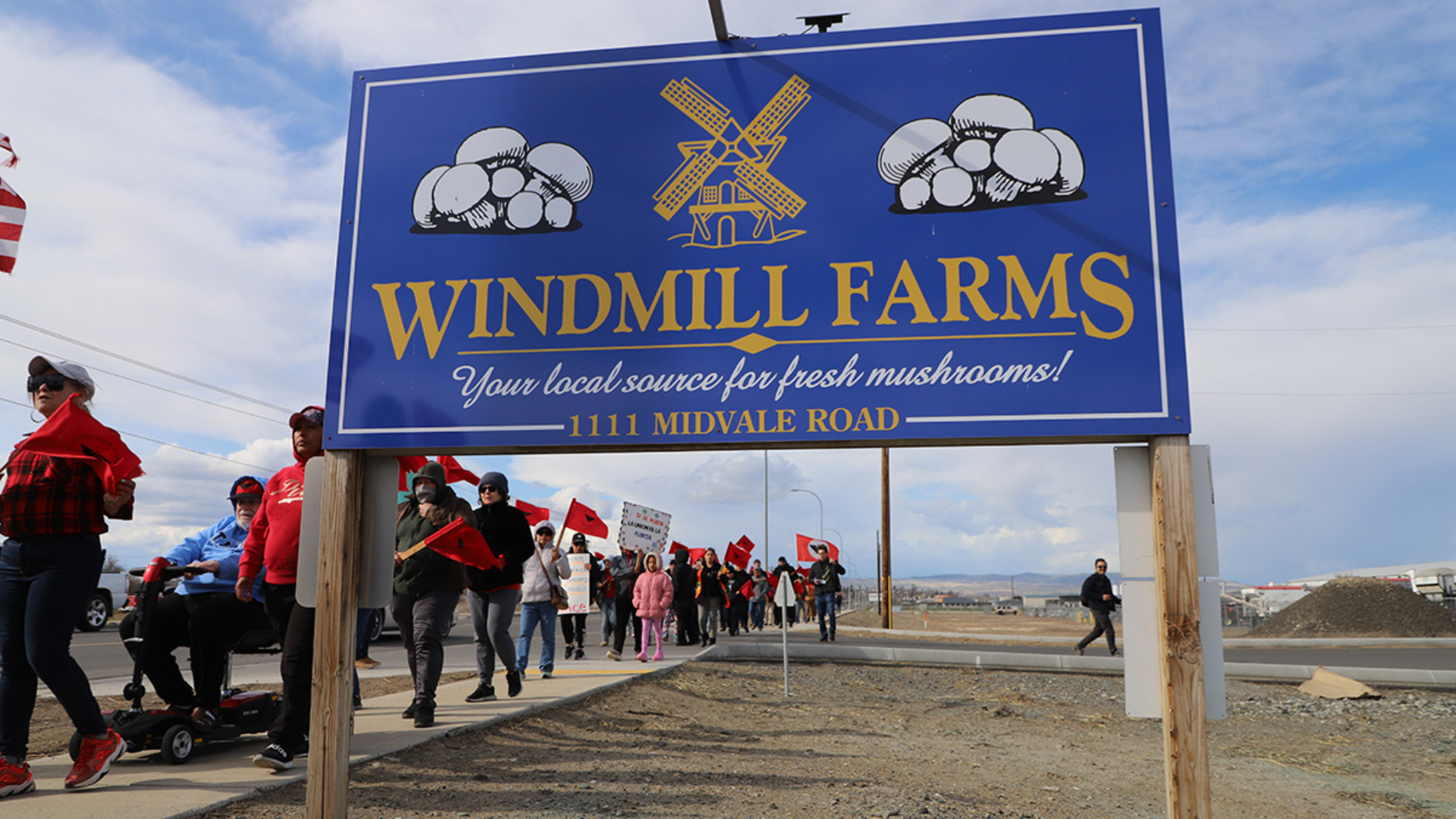
Poor performance of Instar investment as labor dispute escalates at Windmill Farms
July 14, 2025
For over three years, Windmill Farms, a Washington state mushroom farm owned by Canadian private equity firm Instar Asset Management, has faced a stream of accusations of labor abuses, government investigations, fines, and private lawsuits. These accusations led the United Farm Workers (UFW) to call a national boycott of the Farm’s products in late 2024.
While investors should be concerned about labor abuses at Instar’s portfolio companies, recent data has shown that this investment is performing poorly compared to peer funds. The Texas Municipal Retirement System (TMRS) is one of only two known public pension funds invested in InstarAGF Essential Infrastructure II, the private equity fund that owns Windmill Farms. TMRS is invested in the same fund through two different vehicles, a co-investment and a comingled fund.
The most recent TMRS Private Investment Performance Report from March 31, 2025, lists the co-investment vehicle as having a -7.62% IRR (Internal Rate of Return) as of March 2025, while the comingled investment vehicle is listed as 2.08% IRR.
Private equity data provider PitchBook ranks InstarAGF Essential Infrastructure II poorly, in the fourth quartile of IRR performance compared to its peers as of the first quarter of 2025.
Instar only lists three companies acquired since the closing of this fund, including Windmill, making the actions Instar takes at this company important to the overall performance of the fund and therefore, all investors should be concerned about Instar’s significant underperformance.
Instar investors should ask Instar how it plans to address these performance issues and what steps it is taking to mitigate the financial risks associated with the national boycott of Windmill Farms. This controversy highlights the need for investors to develop specific labor standards across their private equity portfolios to mitigate adverse impacts on workers, financial risks, and reputational damage. PESP has developed a comparison of policies that some of the largest US pension funds have adopted and a fact sheet on addressing labor risks in private markets that highlights why this trend has become an important risk mitigation tool.
